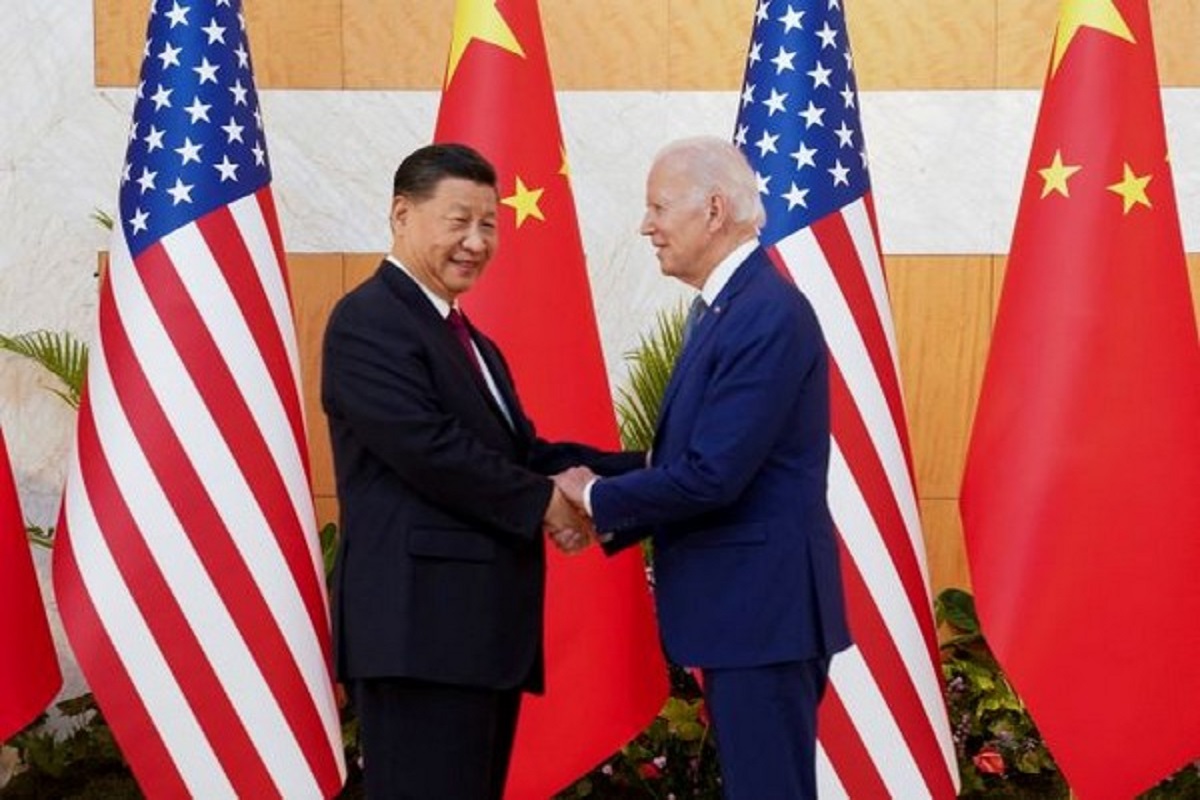XI Jinping and Joe Biden arrived in Bali for this week’s G20 summit buoyed by recent domestic successes. Their three hours of bilateral discussions on Monday may not have yielded any substantial results, but the extended and apparently amicable face-to-face encounter may help to decelerate rising Sino-US tensions.
On the other hand, a key focus of the US president’s diplomacy in Southeast Asia has been to build up support for a US-sponsored strategic alliance directed against China. That is hardly likely to go down well in Beijing. Predictably endorsed for a third term in office, Xi is unlikely to back down from his long-term designs on Taiwan.
Biden said after the Bali talks that an invasion wasn’t imminent. That doesn’t mean the US will stop pouring arms into Taiwan, which China will see as a provocation — and who knows what comes next. Equally, belligerent noises from Beijing provide the US with an excuse for enhancing its military presence in the South China Sea.
Would verifiable Taiwanese neutrality deter China from threatening its sovereignty? No one can say, but it might be a path worth pursuing diplomatically, instead of repeating the errors that helped turn Ukraine into a target for Vladimir Putin’s aggression. Had Putin turned up for the G20, the personal dynamic between him and other leaders would have been intriguing to watch.
But, unlike Biden and Xi, he has no domestic triumphs to boast of — and, on the contrary, plenty of battlefield wounds to lick. It may be too late for a vow of Ukrainian neutrality complemented by a rollback of Nato military encampments on Russia’s borders to persuade a beleaguered Putin to reverse his hapless conquest. Again, it’s hard to say.
Russia and the US are talking at various levels, but a negotiated peace that would halt death and destruction in Ukraine appears not to be on the agenda for now, and even striving for it is seen as anathema in America.
Not long ago, a mild missive to the Biden administration from the congressional Democratic progressive caucus, suggesting that the pursuit of negotiations alongside military aid for Ukraine might be a reasonable course, had to be withdrawn within a day.
Support for Ukraine apparently cannot involve heightened diplomatic efforts to halt the bloodshed — after all, how would that help the weapons manufacturers and arms traders who are reaping a bonanza? All too many of those who justifiably excoriate the Chinese and Russian intolerance of dissent are blind to the transgressions against freedom of opinion in the West, especially, in the US.
There are significant differences obviously, but the consequences of deviating from the official party line can be chilling. Foreign policy seldom feeds into domestic electoral contests in the US, and the narrative behind last week’s midterms revolved around socioeconomic concerns and ideological deviations. One of the many quirks of America’s supposedly exemplary democracy is that two years after electing a president, the electorate invariably rewards his (so far there hasn’t been her) opponents.
Opinion polls and the designated pundits who analyse them were both pointing to a (Republican) ‘red wave’ — despite (or perhaps because of) the fact that many GOP contenders boasted an endorsement by Donald Trump. One of the very few dissidents was activist, writer, and filmmaker Michael Moore, who had correctly predicted in 2016 that the consensus around an easy win for Hillary Clinton was fallacious. This time he insisted that instead of a red wave, there would be a ‘blue tsunami”. That didn’t happen, but the Democrats have held on to the Senate (with the prospect of an extra seat following the Georgia run-off in December) and their deficit in the House of Representatives is likely to be much smaller than feared.
Amazingly, some of the House results are still being calculated, reflecting the narrow margins. A Republican-controlled House could still mean legislative gridlock on Capitol Hill for the remaining two years of the Biden presidency. And let’s hope the incumbent decides against running again in 2024, as an octogenarian.
Ditto for Donald Trump, who is reportedly livid that two-thirds of the candidates he endorsed were defeated. Too many Americans — and quite a few of their re-elected or newly elected representatives — still buy into absurd conspiracy theories though, and it remains to be seen whether the young voters and women who turned out to protect abortion rights and avert a problematic landslide will be inclined to repeat the feat two years hence. That will depend on what the Biden administration strives for, and whether it concentrates on achieving peace at home or on fuelling war abroad.
The constraints of corporate capitalism will almost certainly not be overridden, but they can be ameliorated, and even incremental progress pays off electorally. The dreadful alternative might be a Ron DeSantis presidency two years hence.












